Motion for Preliminary Injunction
as filed by the
Michigan Department of Community Health
in the lawsuit challenging
Michigan's May 2010 no-smoking law
entitled
Foucault-Funke American Legion Post 444 v
Guy St. Germain, Exec Dir of the Western Upper Peninsula Health Dept
and the
Western Upper Peninsula Health Dept
(File No. 10-6062-CZ, Circuit Court, Baraga County, Michigan)
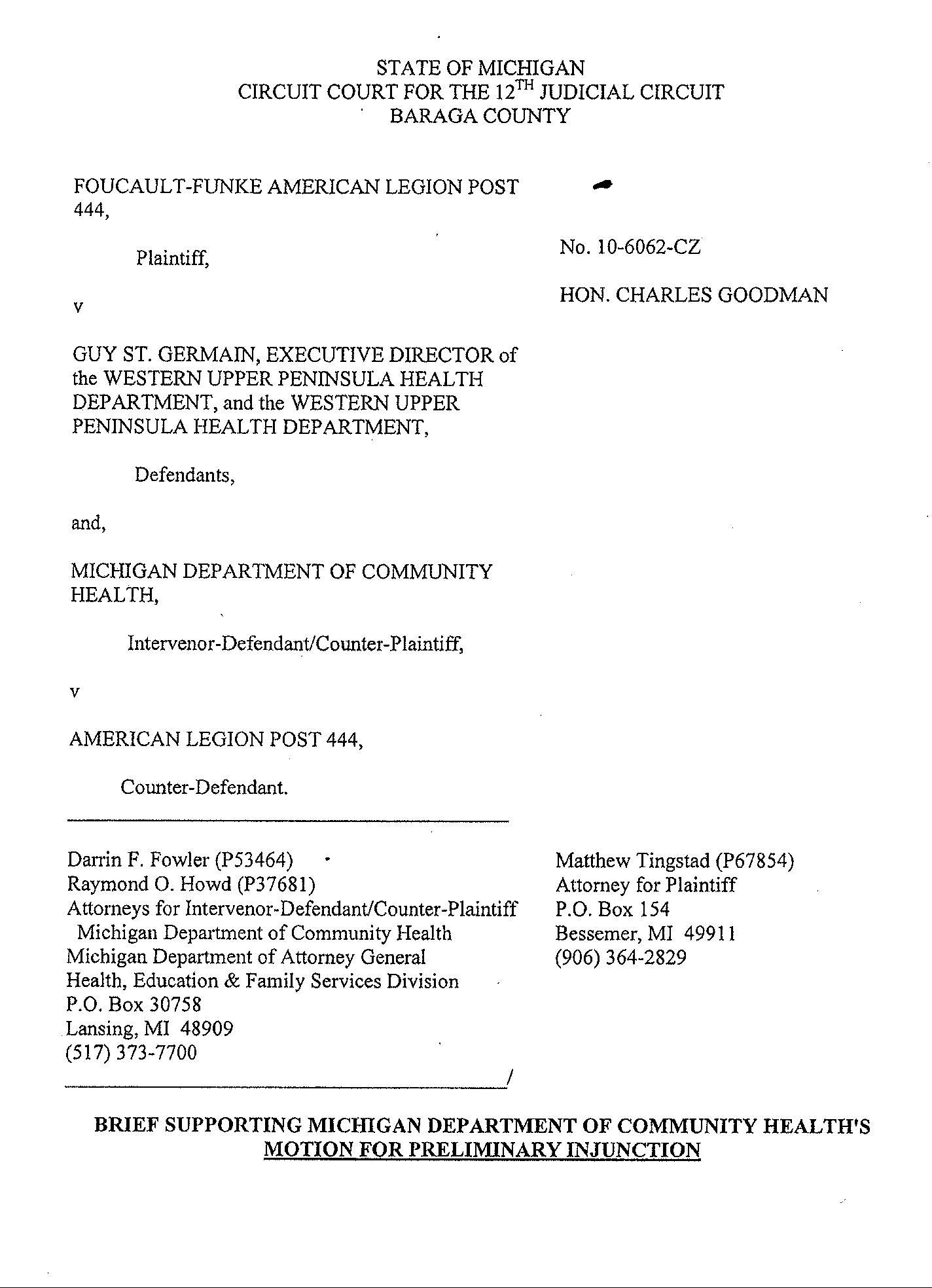
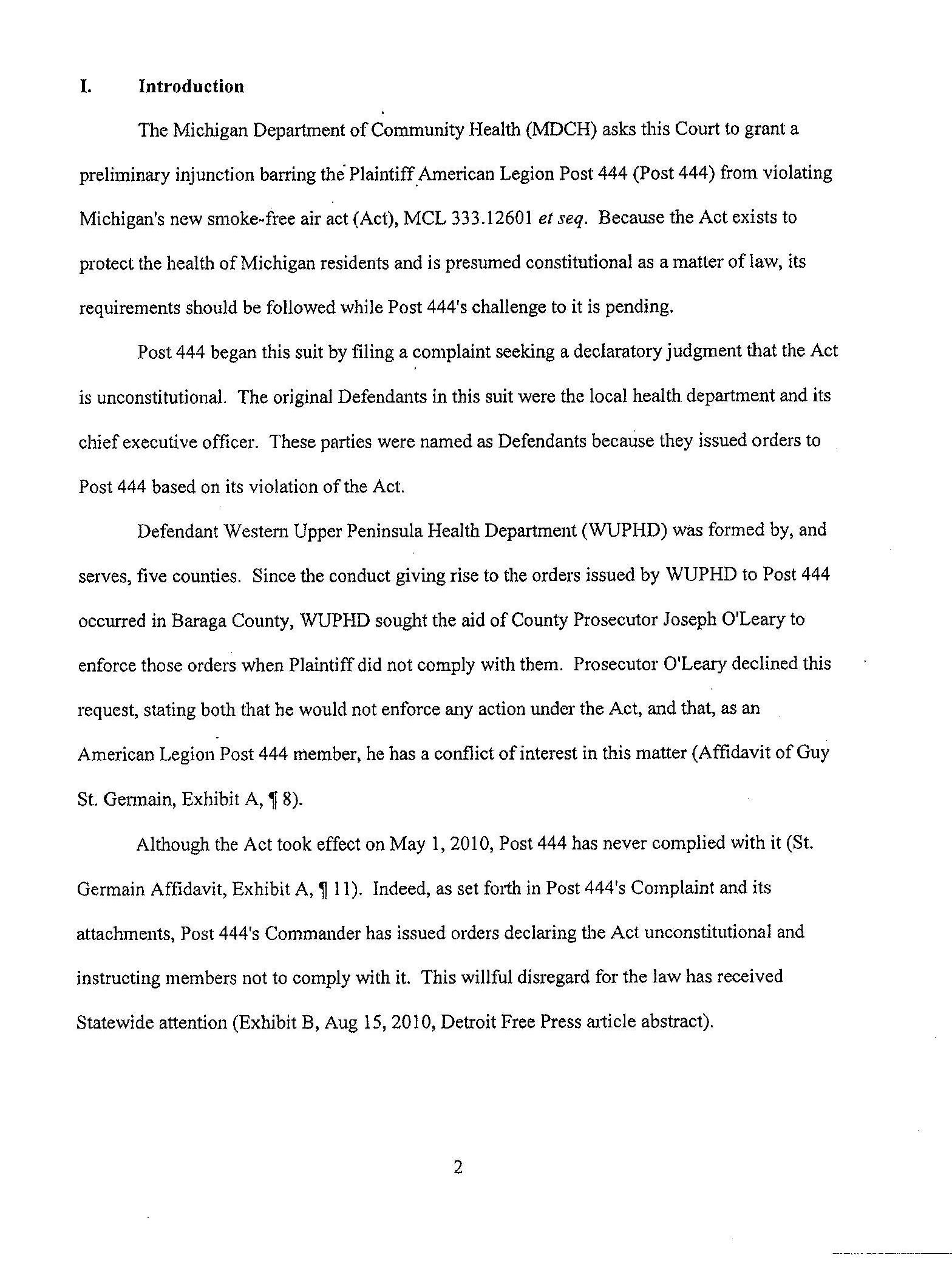
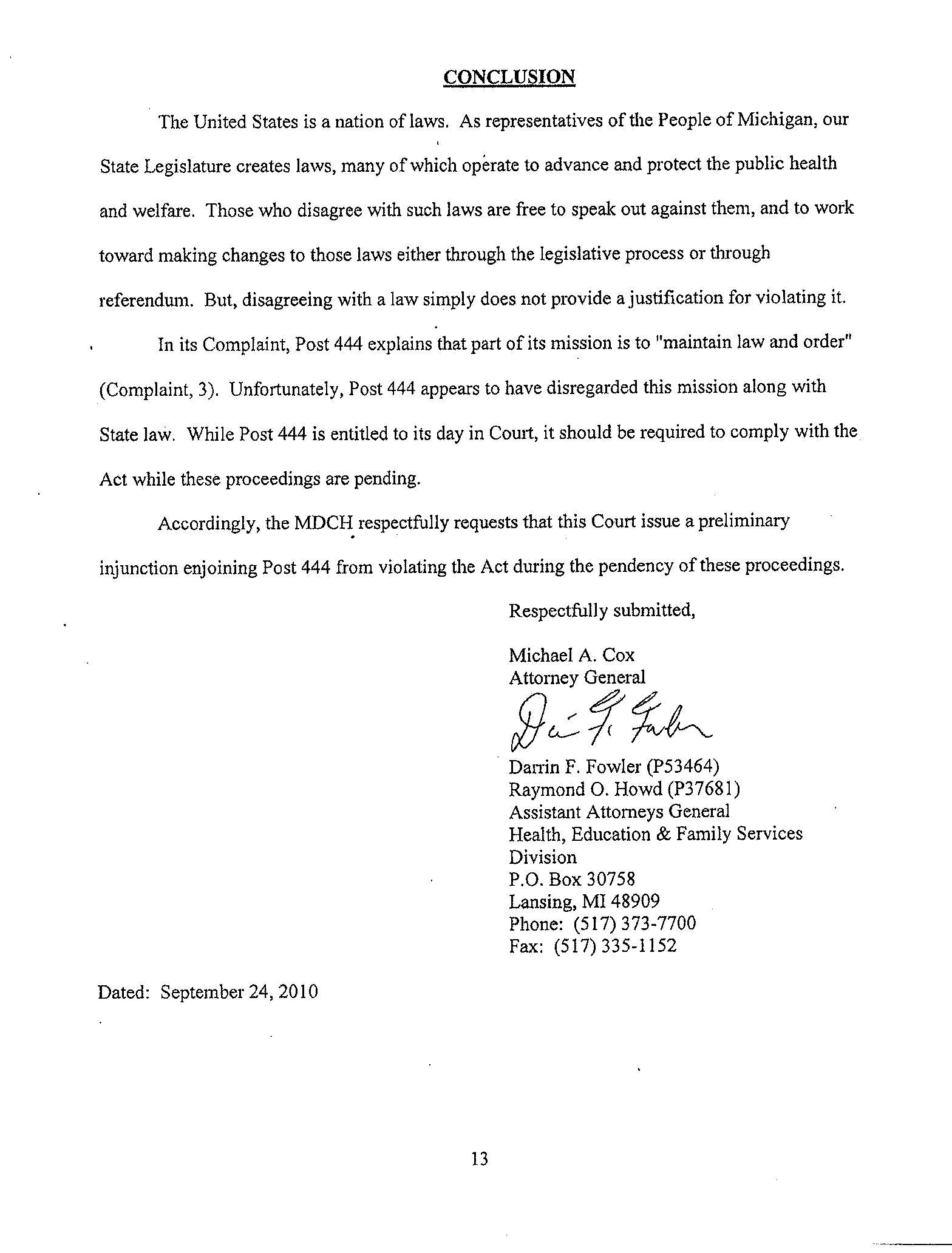
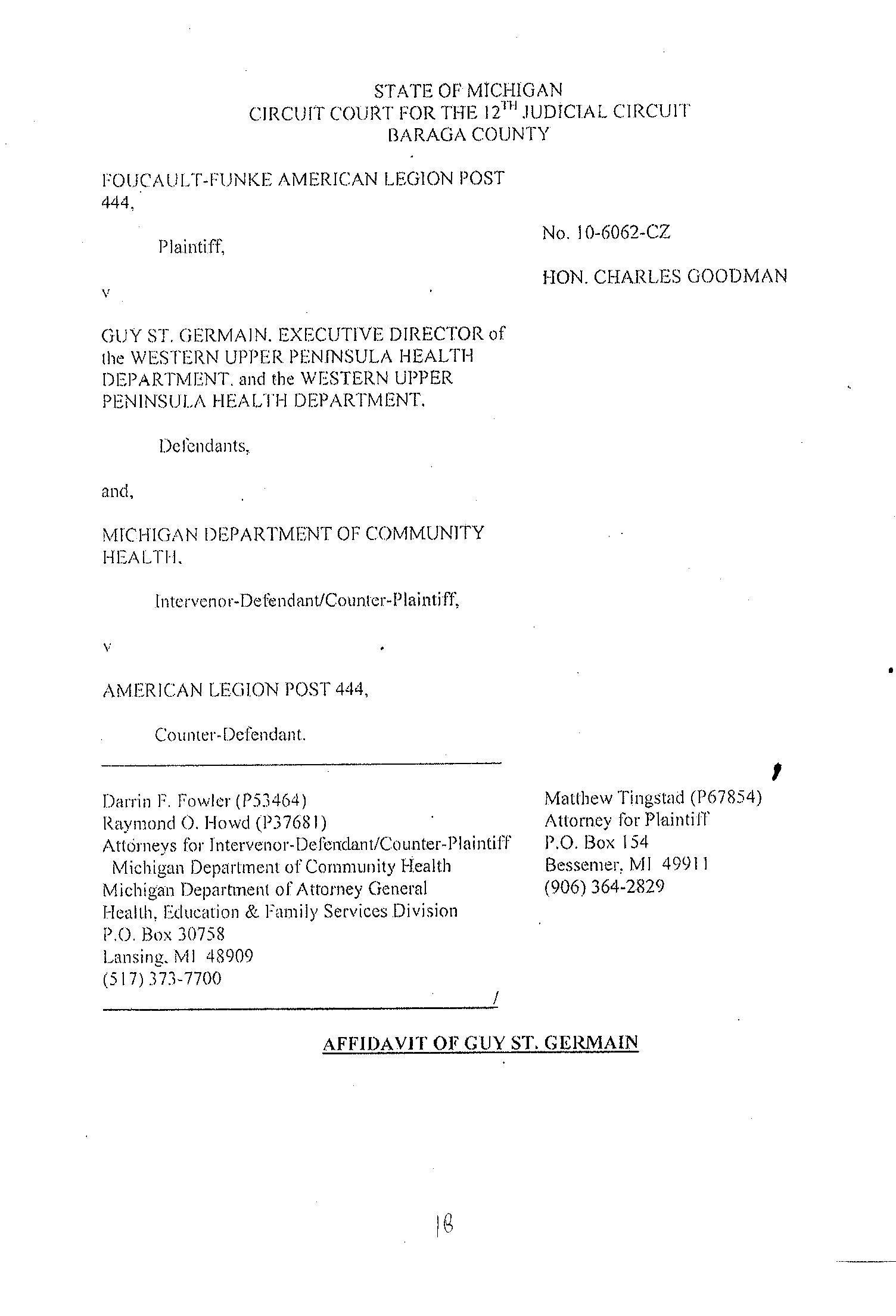
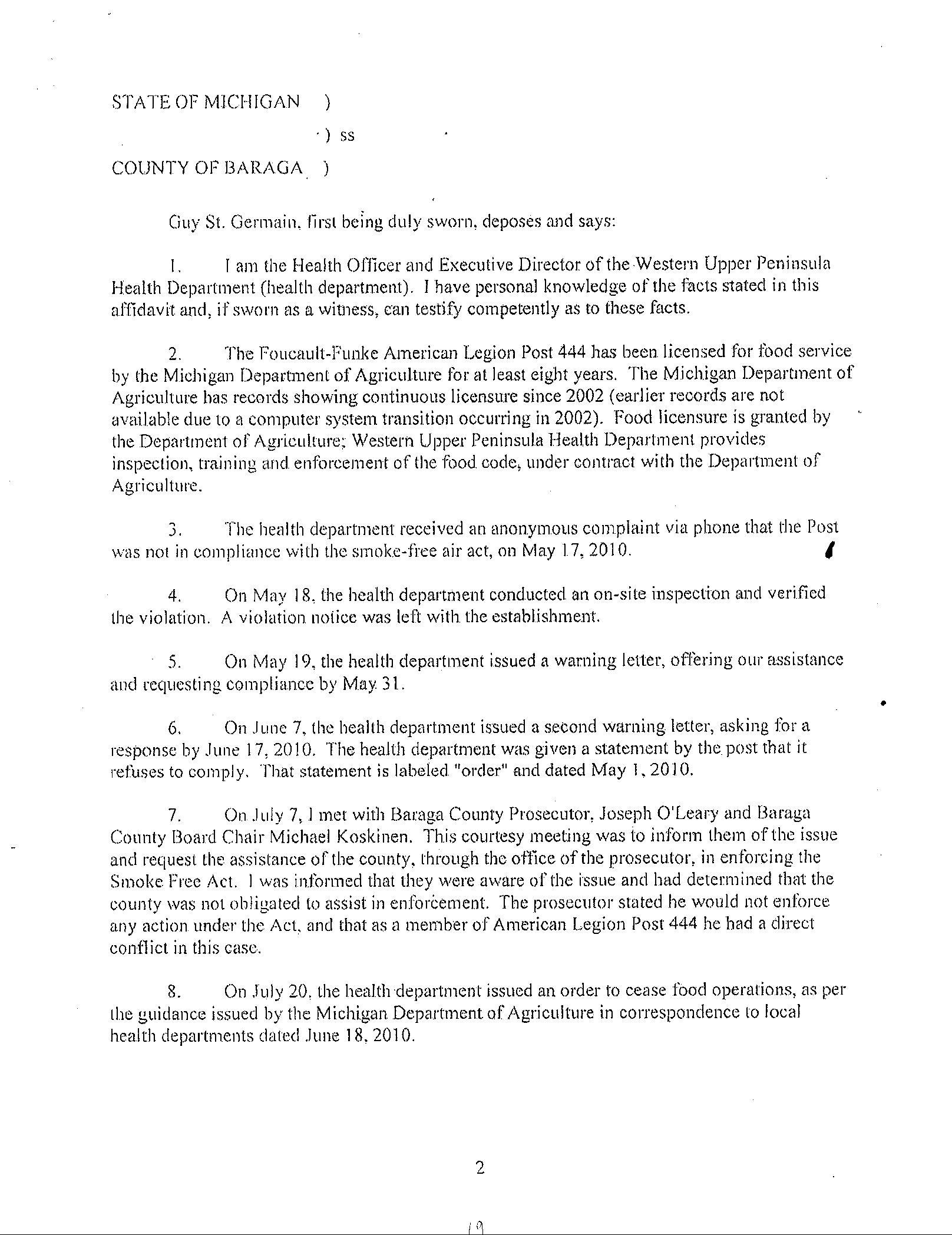
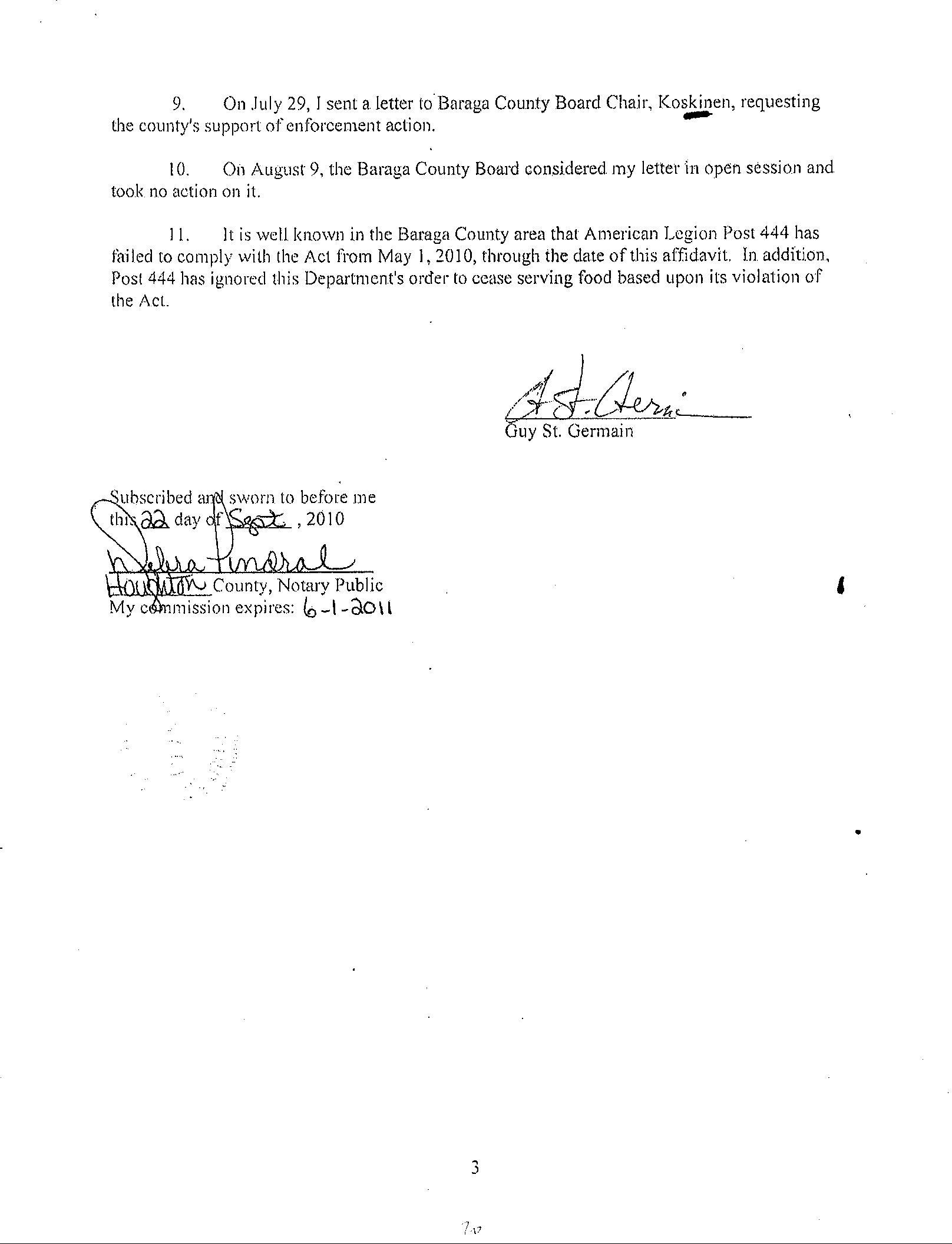
For additional defense of the smoke-free law, see Rebuttal. For the Court Order granting the Department's Motion, click here.
Note that the prosecutor refuses to support the law. In the precedent of State of Kansas ex rel Johnston, State Attorney General v Foster, County Prosecutor, 3 P 534 (Kansas, 2 April 1884), there was a removal of a prosecutor for refusing to enforce a law. On appeal, the Court said that prosecutors must enforce the law regardless of personal desires and clamor of the law's opponents, for reasons including that those of the citizenry who are for the law count on them doing so; 'mistake of law' is not a defense.
The fired prosecutor appealed to the U.S. Supreme Court, in Foster v Kansas ex rel. Johnston, 112 US 201; 5 S Ct 8; 28 L Ed 629 (27 Oct 1884), and Foster v State of Kansas ex rel. Johnston, 112 US 205; 5 S Ct 97; 28 L Ed 696, 697 (10 Nov 1884). The U.S. Supreme Court upheld the removal of the prosecutor.
And see Luteran v U.S., 93 F2d 295 (CA 8, 1937), provides insight re non-enforcement. It says, "where proof of a conspiracy has been established a relatively slight amount of evidence connecting the defendant therewith is sufficient to sustain a verdict," p 398.
"Participation in formation of the conspiracy is not essential to culpability if after it was formed the defendant aided or abetted it with an understanding of its purpose," and "where the defendant aided the conpsirators knowing in a general way their purpose to break the law the jury may infer that he entered into an express or implied agreement with them," p 399.
This includes evidence of some participation including having "heard and saw various other things which characterized the fraudulent [unlawful] conduct of the conspirators," p 399.
"Every hypothesis of innocence is destroyed by his knowledge of the manner in which . . . conspirators had behaved throughout the afternoon," p 399.











